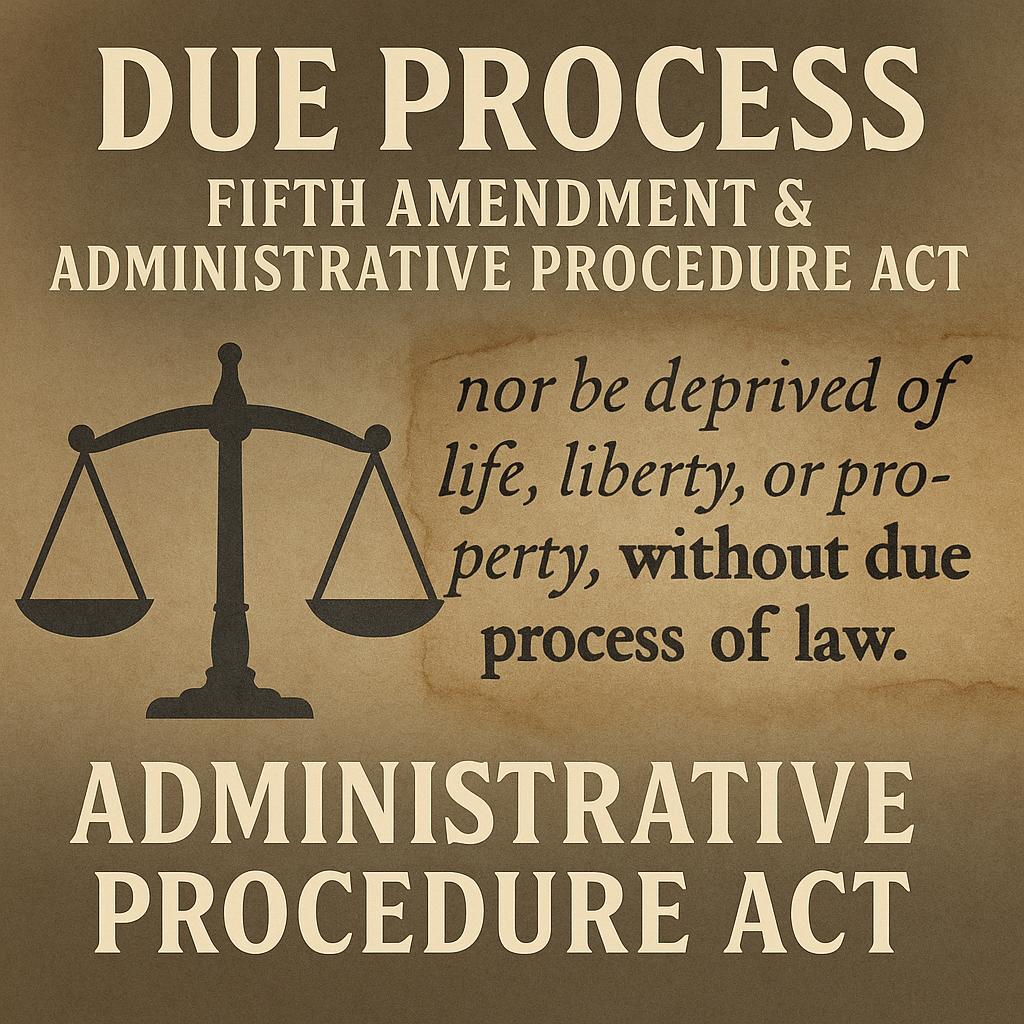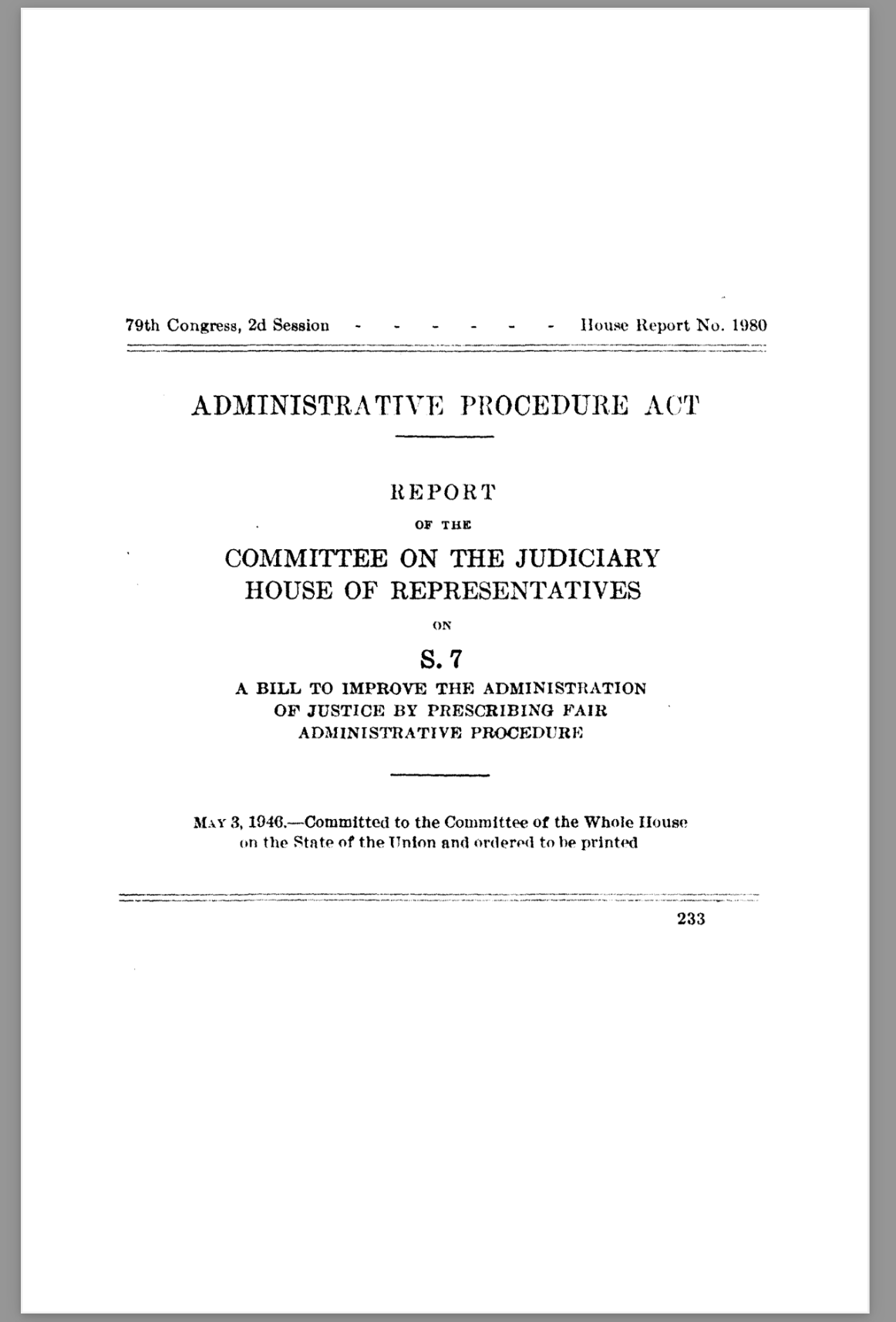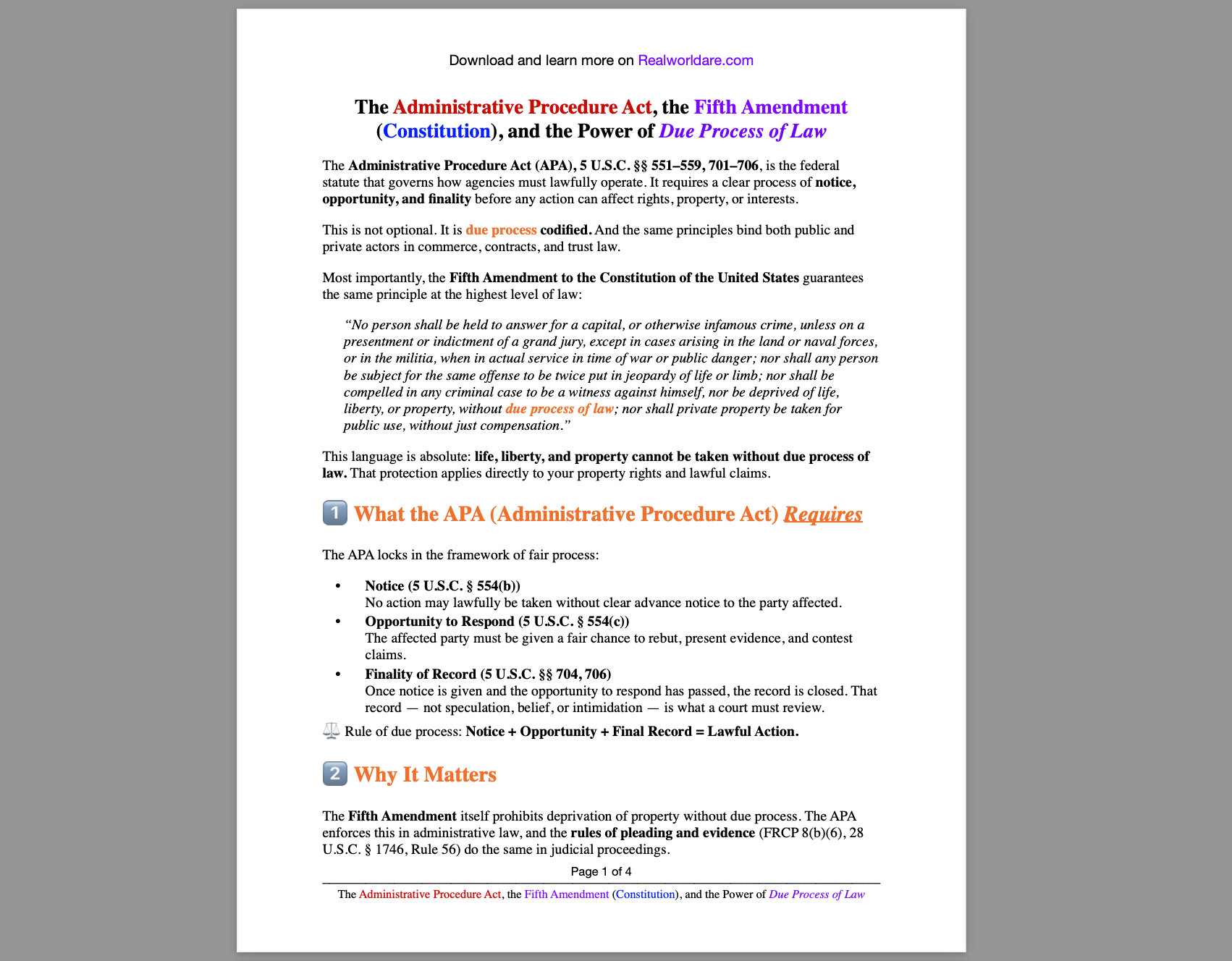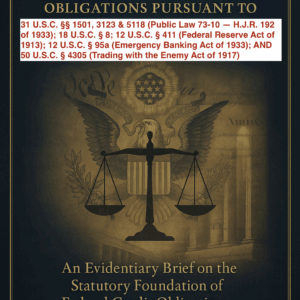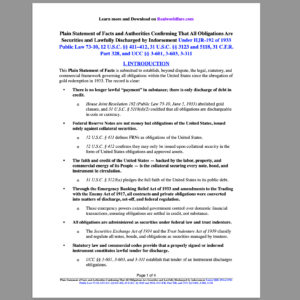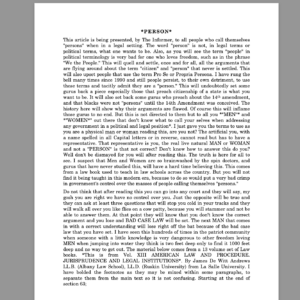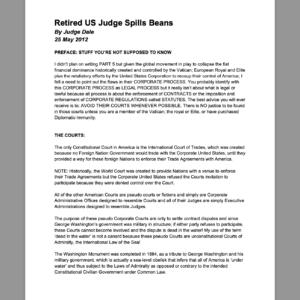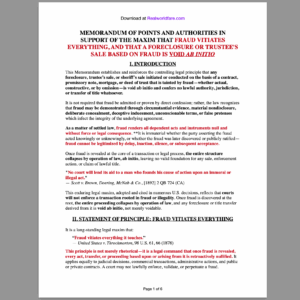The Administrative Procedure Act (APA), 5 U.S.C. §§ 551–559, 701–706, is the federal statute that governs how agencies must lawfully operate. It requires a clear process of notice, opportunity, and finality before any action can affect rights, property, or interests.
This is not optional. It is due process codified. And the same principles bind both public and private actors in commerce, contracts, and trust law.
Most importantly, the Fifth Amendment to the Constitution of the United States guarantees the same principle at the highest level of law:
“No person shall be held to answer for a capital, or otherwise infamous crime, unless on a presentment or indictment of a grand jury, except in cases arising in the land or naval forces, or in the militia, when in actual service in time of war or public danger; nor shall any person be subject for the same offense to be twice put in jeopardy of life or limb; nor shall be compelled in any criminal case to be a witness against himself, nor be deprived of life, liberty, or property, without due process of law; nor shall private property be taken for public use, without just compensation.”
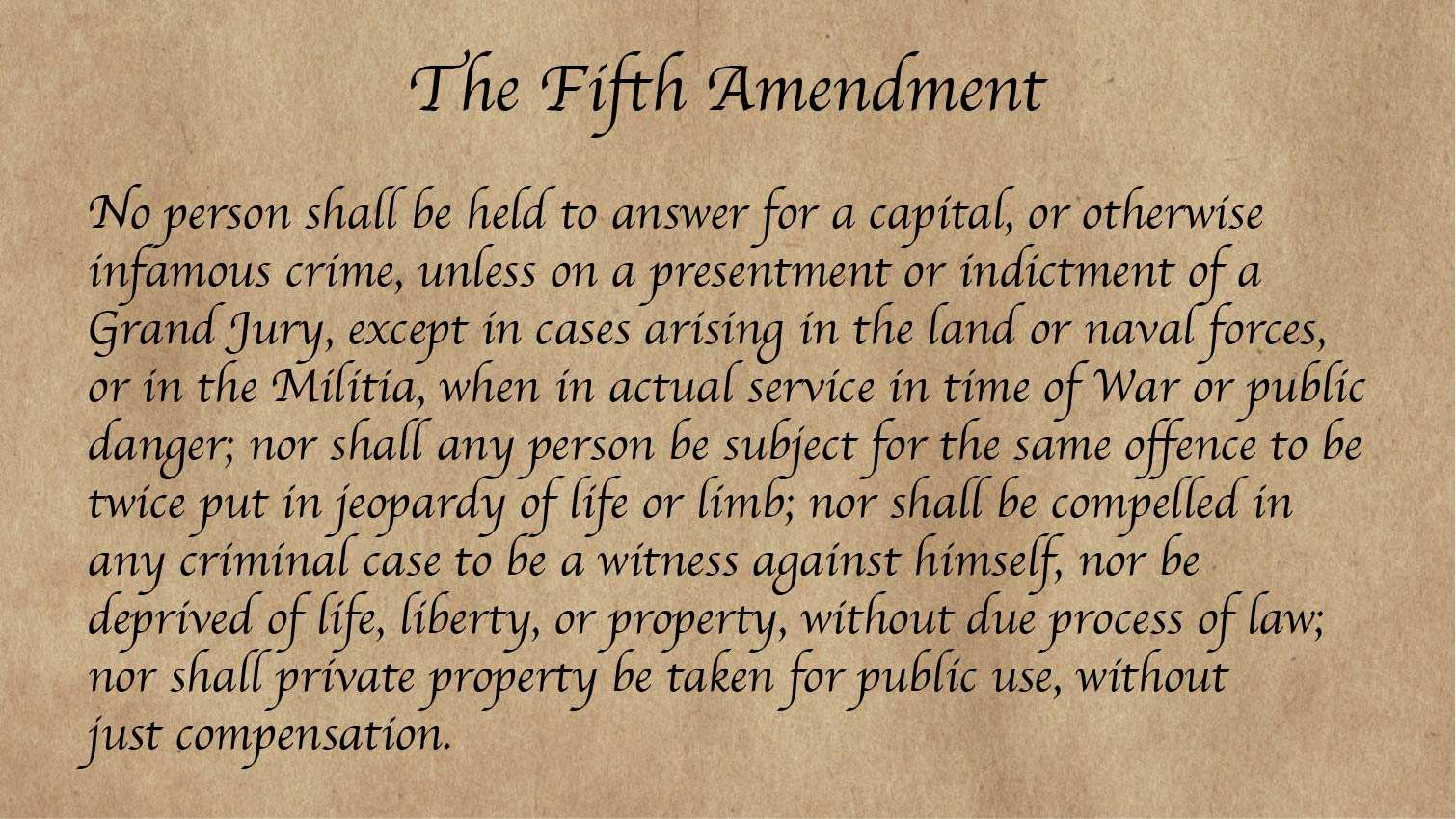
This language is absolute: life, liberty, and property cannot be taken without due process of law. That protection applies directly to your property rights and lawful claims.
1️⃣ What the APA (Administrative Procedure Act) Requires
The APA locks in the framework of fair process:
-
Notice (5 U.S.C. § 554(b))
No action may lawfully be taken without clear advance notice to the party affected. -
Opportunity to Respond (5 U.S.C. § 554(c))
The affected party must be given a fair chance to rebut, present evidence, and contest claims. -
Finality of Record (5 U.S.C. §§ 704, 706)
Once notice is given and the opportunity to respond has passed, the record is closed. That record — not speculation, belief, or intimidation — is what a court must review.
⚖️ Rule of due process: Notice + Opportunity + Final Record = Lawful Action.
2️⃣ Why It Matters
The Fifth Amendment itself prohibits deprivation of property without due process. The APA enforces this in administrative law, and the rules of pleading and evidence (FRCP 8(b)(6), 28 U.S.C. § 1746, Rule 56) do the same in judicial proceedings.
Any action outside this process is void as arbitrary, capricious, and unconstitutional.
3️⃣ The Parallel in Private Enforcement
The same process governs lawful private action. The structure is identical:
-
Conditional Acceptance / Affidavit of Facts = Notice.
-
Notice of Default and Opportunity to Cure = Opportunity to Respond.
-
Certificate of Dishonor / Unrebutted Affidavit = Final Record.
If no rebuttal is made under oath, in equal form and substance, the affidavit stands as truth.
-
“He who does not deny, admits.”
-
“Silence is acquiescence.”
-
“Default is dishonor.”
4️⃣ Authority for Unrebutted Affidavits
This principle is not theory — it is codified law and precedent.
-
28 U.S.C. § 1746 – Affidavits and declarations under penalty of perjury carry the same force as sworn testimony.
-
Fed. R. Civ. P. 8(b)(6): Allegations not denied in a required pleading are admitted.
-
Fed. R. Civ. P. 56(e): Facts supported by affidavit are deemed admitted if not specifically rebutted.
-
Fifth Amendment: No deprivation of property without due process of law.
Case Law:
-
“Unrebutted affidavits must be taken as true.” – Morris v. Nat’l Cash Register, 44 S.W.2d 433 (Tex. App. 1931)
-
“Averments in a verified pleading, not denied, are admitted.” – United States v. Kis, 658 F.2d 526, 536 (7th Cir. 1981)
-
“Silence can only be equated with fraud where there is a duty to speak.” – U.S. v. Tweel, 550 F.2d 297, 299 (5th Cir. 1977)
Maxims of Law:
-
“Unrebutted claims become truth in commerce.”
-
“He who comes into equity must come with clean hands.”
-
“No one is allowed to benefit from his own wrong.”
👉 An affidavit unrebutted is not opinion — it is evidence + admission = binding truth.
5️⃣ The Hypocrisy
-
When government agencies issue a Notice of Deficiency, Notice of Suspension, or Notice of Default, it is called lawful process.
-
When a man uses the same lawful process — affidavits, notices, dishonor certificates — to defend private property, suddenly it is smeared as “extortion” or “frivolous.”
⚖️ The process is identical. The only difference is that it exposes their fraud.
6️⃣ Intimidation and Retaliation Are Crimes
To attempt to intimidate One’s enforcement or criminalize lawful affidavits and private administrative process is not only baseless — it is itself intimidation, retaliation, and criminal conduct.
-
18 U.S.C. § 241 – Conspiracy against rights: threatening or intimidating anyone in the exercise of rights is a federal crime.
-
18 U.S.C. § 242 – Deprivation of rights under color of law: intimidation or retaliation against lawful process creates personal liability.
-
42 U.S.C. § 1983 – Civil liability for retaliatory conduct and deprivation of rights.
Case Law:
-
“Threats, intimidation, or coercion that interfere with rights secured by law are actionable.” – U.S. v. Guest, 383 U.S. 745 (1966)
-
“The exercise of a constitutional right cannot be subject to retaliation.” – Mt. Healthy City Bd. of Educ. v. Doyle, 429 U.S. 274 (1977)
Maxims:
👉 Retaliating against someone for using administrative process is itself a crime and undeniable proof of dishonor.
7️⃣ The Reality
No man or woman can be harmed by affidavits demanding proof of claim.
-
No corpus delicti (injured party + unlawful act) = no crime.
-
Affidavits create lawful record; they do not cause injury.
To attempt to paint such lawful acts as “criminal” is projection — accusing the injured party of the very fraud, coercion, and dishonor that the aggressor is engaged in.
✅ Conclusion
The Fifth Amendment, the APA, federal statutes, and equity itself all converge on the same principle:
-
Notice must be given.
-
Opportunity must be afforded.
-
Silence and failure to rebut = default, dishonor, and final record.
The same due process codified in the Constitution itself, enforced through the APA, and mirrored in federal civil procedure. An Administrative procedure is good faith, transparency, and operating with clean hands.
👉 To call this “criminal” is intimidation, retaliation, and fraud. The record stands unrebutted, and the law — constitutional, statutory, procedural, and equitable — is on your side.
